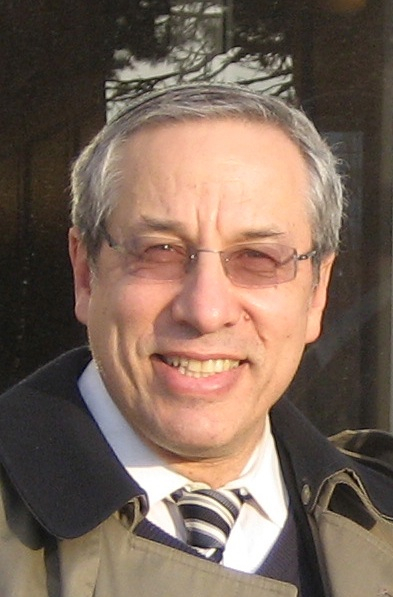In my view: Moving forward by going into reverse
The Rabba Controversy
by Rabbi Heschel Billet
The recent decision of one Orthodox rabbi to ordain women with the title ‘Rabba’ has created a lively debate within Orthodox Jewish circles in the United States. Historically, women have not served the Orthodox community in a rabbinic capacity. That does not necessarily mean that it is halachically wrong for them to have that title. But it also does not mean that the absence of such a title is a flaw that must be corrected by ordaining women. What is really important for learned and educated women in the modern sector of Orthodox Judaism today?
Certainly modernity has brought change to a number of Orthodox synagogues. In some areas the change might be within the framework of halachic inclusion of handicapped people. I wonder whether individuals with severe hearing impairments and developmental disabilities would have been called up to the Torah 200 years ago. Greater knowledge about the nature of disabilities has wrought dramatic and welcome changes in our synagogues. Technology, ‘grama switches’, and timers have enabled synagogues to control climate, use alarms, install elevators, and halachically designed microphones.
An increased awareness of the contribution our women can make has also brought about some changes in traditional modern Orthodox mixed gender congregations.
In some synagogues, a Bat Mitzvah or other women deliver divrei Torah from the pulpit on Shabbat (often upon the conclusion of services), women serve as officers, halachic mechitzot have been constructed in a more inclusive manner, and women serve as teachers, counselors, and yoatzot on numerous halachic issues. This is not true of every community. Different communities have different perspectives that are accommodated by practices that meet those needs.
Rabbi Dr. Daniel Sperber, in his introduction to his stimulating and controversial book, Darkah Shel Halacha, discusses the methodology that a halachic authority must use as he seeks a proper and honest halachic decision. It is very easy to begin with a desired conclusion and then tweak the sources to accommodate a decision. But that is not the normative way of deciding the law. Halacha must begin with a question, proceed with an objective examination of the sources, and conclude with an honest answer.
There are academic studies of Halacha that use historical and geographical surveys of halachic traditions on a particular issue. But the normative tradition of ‘psak’ maintained by the authorities over the centuries does not always conform to academic analysis.
Dr. Sperber argues that sometimes the principle of ‘nahara nahara upashtai’ (Chulin 18b), rivers flow differently as they branch into tributaries based on differing topographies, must be a determining factor in normative halacha. Essentially this means that sometimes there are factors unique to each community at a particular moment in time which must be factored into the Posek’s mind before rendering certain halachic decisions.
I assume that indeed Dr. Sperber’s principle was a factor in the decision to give a formal rabbinic title to a woman. Apparently the decision to ordain a woman was intended to fill a void in a specific sector of the Orthodox community. The river flows differently today than in the past and that can only be addressed by the ordination of women. I believe that is an error.
The title ‘rabbi’ today, confers the right to answer Halachic questions. It would seem that a person of either gender who has enough knowledge can answer a halachic question, can give a dvar Torah, teach a class and give good advice and counsel. In a number of synagogues there are women who do that without the title ‘Rabbi.’
In those communities where greater inclusion of women in a synagogue role is important, enabling women to serve the community in a halachically acceptable way is far more important than conferring her with the title, ‘Rabbah.’ This point was made in greater detail by Rabbi Shmuel Hain in his excellent piece posted on JTA on February 8th.
One person deciding to give a rabbinic title to a woman is rather meaningless and it distracts us from more significant business. What should be of primary importance is how we educate our women and what opportunities we provide them, not what titles we give them.
It is not too late to acknowledge that, although well intentioned, the granting of a rabbinic title to a woman was wrong. Acknowledgement of a mistake is a virtue and a sign of strength as evidenced in Yehudah’s admission of error in the case of Tamar. Our community cannot afford a major schism. We debate many contentious issues but still maintain a fragile unity.
It is time to withdraw the title and to move forward in the education of our women and in enabling them to flourish without controversy.
Rabbi Herschel Billet is the rav of the Young Israel of Woodmere

 45.0°,
Partly Cloudy
45.0°,
Partly Cloudy 




